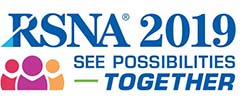

ParticipantsBalaji Rao, MBBS, FRCR, New Haven, CT (Abstract Co-Author) Nothing to Disclose
Vahe M. Zohrabian, MD, Norwalk, CT (Abstract Co-Author) Nothing to Disclose
Paul Cedeno, MD, New Haven, CT (Abstract Co-Author) Nothing to Disclose
Atin Saha, MD, New Haven, CT (Presenter) Nothing to Disclose
Jay K. Pahade, MD, Southport, CT (Abstract Co-Author) Consultant, General Electric Company
Melissa A. Davis, MD, Atlanta, GA (Abstract Co-Author) Advisor, Nines AI
AI solution can serve as a prospective peer review tool for non-contrast head CT scans to identify ICH and thus decrease false negatives.
BackgroundMisdiagnosis of intracranial hemorrhage (ICH) can adversely impact patient outcome. Increasing workload on the radiologists may increase the chance of error and compromise quality of care provided by the radiologists.
EvaluationWe used a FDA approved artificial intelligence (AI) solution based on convolutional neural network (CNN) to assess the prevalence of ICH in scans which were reported as negative for ICH. We retrospectively applied the AI solution to all consecutive non-contrast computed tomography (CT) head scans performed at 6 imaging sites affiliated to our institution. In the 6565 non-contrast CT head scans, which met the inclusion criteria, 5585 scans were reported to have no ICH ("negative-by-report" cases). We applied AI solution to these "negative-by-report" cases. AI solution suggested there were ICH in 28 of these scans ("negative-by-report" and "positive-by-AI solution"). After consensus review by three neuroradiologists, 16 of these scans were found to have ICH which was not reported (missed diagnosis), with false negative rate of radiologists for ICH detection at 1.6%.
DiscussionOur study demonstrates that AI solution can help radiologists to diagnose ICH and thus decrease error rate.